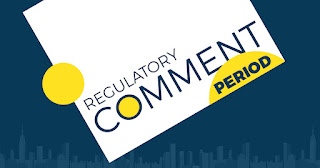The US Department of Labor's Wage and Hour Division (WHD) recently relaunched a self-audit program for US private employers called the Payroll Audit Independent Determination (PAID) program. It bills itself as a "program to help employers resolve potential minimum wage and overtime violations under the Fair Labor Standards Act (FLSA), as well as certain potential violations under the Family and Medical Leave Act (FMLA)." Sounds like a great idea to resolve pay issues quickly without penalty, right?
However, while the program purports to "allow[] employers to correct mistakes efficiently and ensure employees receive back wages or other remedies promptly, all while avoiding litigation," THIS IS FALSE ADVERTISEMENT and the program should be avoided by employers, except in very limited circumstances.
Employers should be warned that PAID cannot waive employee's federal FLSA / FMLA / Discrimination related claims and does not even address state claims, such as NYS Paid Family Leave or state wage and hour suits under the New York State Labor Law. Here is the rub, while PAID is designed to "quickly provide 100% of the back wages due" to employees, under applicable federal law employees who bring suit can recover liquidated damages, or 200% of the back wages, plus attorneys' fees and costs. In fact, under the NYS labor law, if unpaid wages are found to have been willful, recovery jumps to a possibility of 400% of the back wages. So, ask yourself, would you be happy, as an employee, in only getting 100% when you can recover 400%. For employers, it seems like a much better strategy in mitigating exposure to negotiate tailored settlements with each individual employee who is owed wages where the employer should obtain a release prior to ever considering revealing evidence to the government and alerting those employees as to their rights, no?
Don't forget that an employee can seek a penalty under paid family leave and potentially, if there is also discrimination involved, which is frequently the case when paid family leave is wrongfully denied, an employee can also recover emotional support damages.
So, if an employer utilizes the PAID program, an employee should immediately consult with an employment attorney and pursue getting paid the damages that they are due.
If you’re facing wage, leave, or discrimination issues, consult with the experienced employment attorneys at Lieb at Law, P.C. to protect your rights and develop a winning strategy.
*attorney advertising






